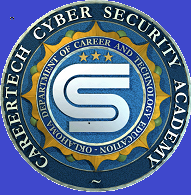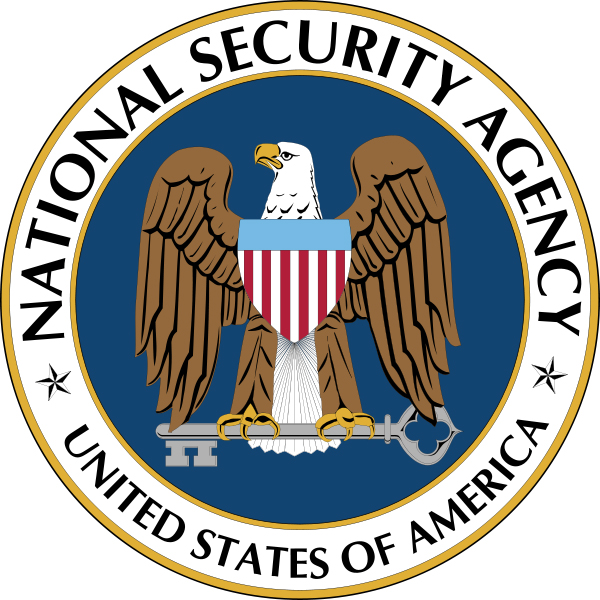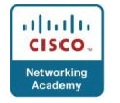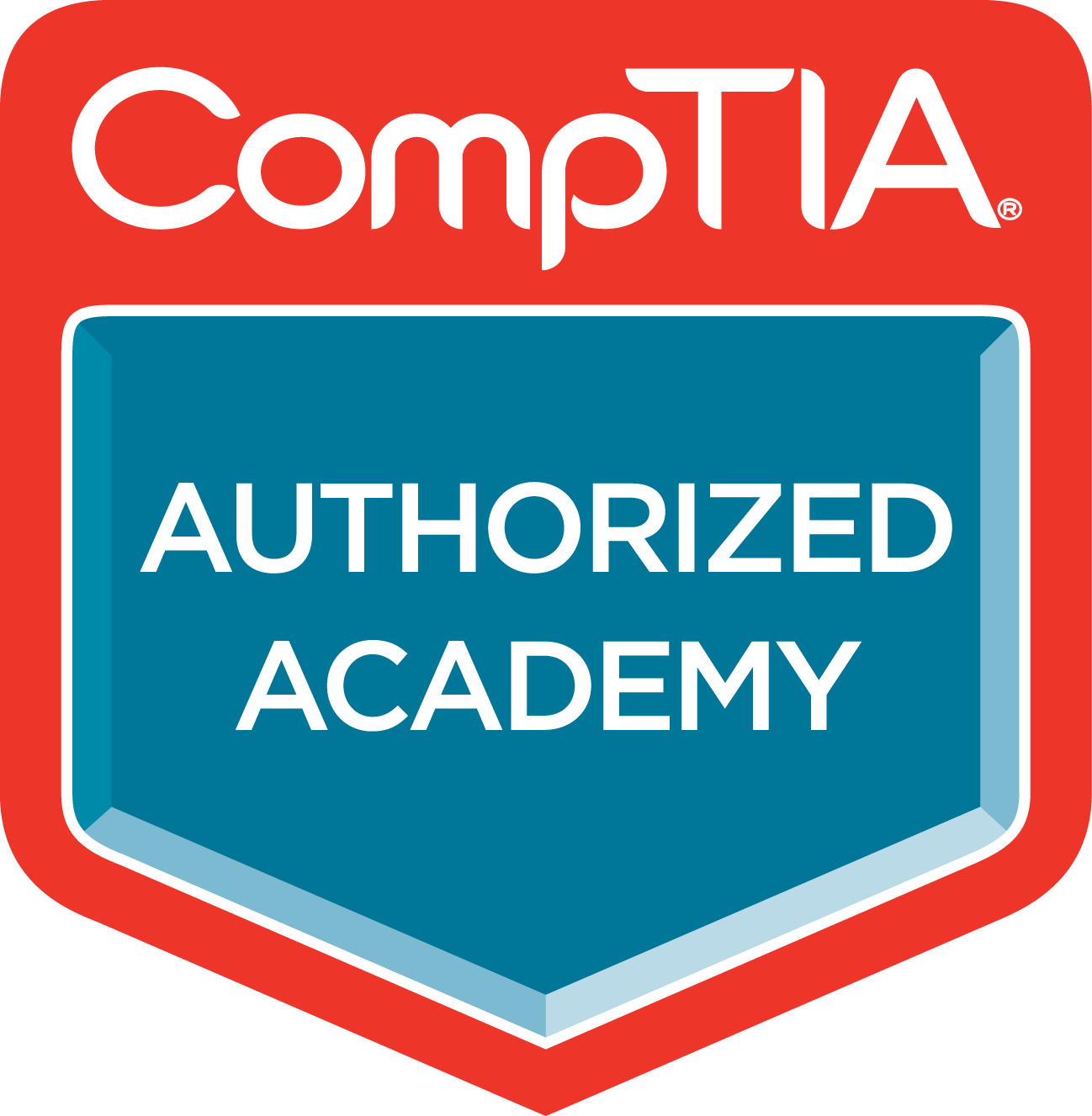Francis Tuttle Technology Cyber Program - G. Porter
Section outline
-

The Francis Tuttle Technology Center Cyber Security Program is working to meet the nation's ever increasing need for cyber security professionals. The program is designed for adult, high school juniors and seniors seeking to join this field.
- Francis Tuttle was one of the founding members of CSEC. The Cyber Security Education Consortium is a cohesive partnership of community colleges and career and technology centers in Oklahoma, Arkansas, Colorado, Kansas, Louisiana, Missouri, Tennessee and Texas and the University of Tulsa. CSEC is comprised of 42 active two-year academic institutions.
As a National Science Foundation Advanced Technological Education Regional Center, CSEC's objectives are to:
(i) develop and disseminate cyber security curricula;
(ii) train instructors and build thriving cyber security programs; and
(iii)create a cadre of skilled professionals who will stimulate job growth and economic development in an eight-state region: Oklahoma, Arkansas, Colorado, Kansas, Louisiana, Missouri, Tennessee and Texas.
A Francis Tuttle the program career majors are designed to fit specific levels of employment in the IT field and help the student gain the industry certifications need to become employed.
All the majors are modular and stackable, to enable the student to match their training to their employment goals. In addition, they can transfer most if not all credits from a lower level major to a higher level major.
In addtition, we have aligned the majors and courses with The Workforce Framework a national resource that categorizes, organizes, and describes cybersecurity work. The National Initiative for Cybersecurity Education (NICE) developed the Workforce Framework to provide educators, students, employers, employees, training providers and policy makers with a systematic way to for organizing the way we think and talk about cybersecurity work, and what is required of the cybersecurity workforce. See additional links
-
Shows Student Options
-
Studies in the Cyber Security Program are divided into areas of study or majors. Each major is designed to prepare the students to meet the requirements for an IT role. The majors are constructed to be modular allowing students to move from one major to another without duplication.
Careers in IT Networking: Hear from Cisco Expert
-
660 hours
Intended to prepare students for enter level IT positions. It focuses on CompTIA's A+ and Cisco's Cisco Certified Entry Networking Technician certifications.
It also includes the core classes which are required for all the other majors.
-
940 hoursThis major add the courses to allow a student to earn the Cisco Certified Network Associate (CCNA) Routing and Switching Speciality. Cisco Certified Network Associate (CCNA) Routing and Switchingis a certification program for entry-level network engineers that helps maximize your investment in foundational networking knowledge and increase the value of your employer's network. CCNA Routing and Switching is for Network Specialists, Network Administrators, and Network Support Engineers with 1-3 years of experience. The CCNA Routing and Switching validates the ability to install, configure, operate, and troubleshoot medium-size routed and switched networks.
-
780 hours
The major adds the hours for the student to gain the Cisco Certified Network Associate Security Speciality (CCNA Security) The Cisco Certified Network Associate Security validates associate-level knowledge and skills required to secure Cisco networks. With a CCNA Security certification, a network professional demonstrates the skills required to develop a security infrastructure, recognize threats and vulnerabilities to networks, and mitigate security threats. The CCNA Security curriculum emphasizes core security technologies, the installation, troubleshooting and monitoring of network devices to maintain integrity, confidentiality and availability of data and devices, and competency in the technologies that Cisco uses in its security structure.
-
-
-
Instruction is provided in the form of learning activity packets (LAPs), lectures, class discussions, hands-on training, demonstrations, projects, performance evaluation, and online curriculum.
-
NETLAB+ enables our program to host real IT equipment, virtual machines, and lab content on the Internet to support IT training. NETLAB+ includes all the software needed to provide an environment through which students may schedule and complete lab exercises forthe Cyber Security Program courses.
-
-
More information on the individual core courses making up the Enterprise Networking Technican major including specific course objectives.
-
Students develop an understanding of emerging information technology and data communications. Students demonstrate, in a laboratory setting, knowledge of the necessary skills of building a computer, installing the operating systems, adding peripherals and connecting the computer to a local-area network as well as the internet.
-
This course introduces the architecture, structure, functions, components, and models of the Internet and other computer networks. The principles and structure of IP addressing and the fundamentals of Ethernet concepts, media, and operations are introduced to provide a foundation for the curriculum. By the end of the course, participants will be able to build simple LANs, perform basic configurations for routers and switches, and implement IP addressing schemes.
-
This course describes the architecture, components, and operations of routers and switches in a small network. Participants learn how to configure a router and a switch for basic functionality. By the end of this course, participants will be able to configure and troubleshoot routers and switches and resolve common issues with RIPv1, RIPng, single area and multi-area OSPF, virtual LANs, and inter-VLAN routing in both IPv4 and IPv6 networks.
-
-
Outlines the additional courses require to prepare for the Cisco Certified Network Associate Routing & Switching Speciality including specific course objectives.
-
This course describes the architecture, components, and operations of routers and switches in larger and more complex networks. Participants learn how to configure routers and switches for advanced functionality. By the end of this course, participants will be able to configure and troubleshoot routers and switches and resolve common issues with OSPF, EIGRP, and STP in both IPv4 and IPv6 networks. Participants will also develop the knowledge and skills needed to implement a WLAN in a small-to-medium network.
-
More detailed information about the course
-
This course discusses the WAN technologies and network services required by converged applications in a complex network. The course enables participants to understand the selection criteria of network devices and WAN technologies to meet network requirements. Participants learn how to configure and troubleshoot network devices and resolve common issues with data link protocols. Participants will also develop the knowledge and skills needed to implement virtual private network (VPN) operations in a complex network.
-
More detailed information about the course
-
-
Outlines the additional courses require to prepare for the Cisco Certified Network Associate Security Speciality including specific course objectives
-
The CCNA® Security course provides a next step for individuals who want to enhance their CCNA-level skill set and help meet the growing demand for network security professionals. The curriculum provides an introduction to the core security concepts and skills needed for the installation, troubleshooting, and monitoring of network devices to maintain the integrity, confidentiality, and availability of data and devices.
-
More detailed information about the course
-
-
Student must complete
Additional courses:
- Principles of Information Assurance
- Network Security
- Enterprise Security Management

-
The courses from the Information Systems Security (INFOSEC) Professional
- Principles of Information Assurance
- Network Security
- Enterprise Security Management
Plus the following courses- Secure Electronic Commerce
- Digital Forensics

-
In order to better meet each students interest and goals we have allow a number of elective courses for them to select from for their Capstone class.

-
This course is an introduction into networking as well as an intensive introduction to multi-tasking networking operation systems. Student will get the hands-on skills necessary to work with the Linux operation systems in a network administration environment. Comprehensive coverage includes updated information pertinent to the latest Linux distributions, as well as new storage technologies such as LVM and ext4. Readers will learn about new and expanded material on key job-related networking services including FTP, NFS, Samba, Apache, DNS, DHCP, NTP, RADIUS, LDAP, Squid, Sendmail, Postfix, X, SSH, VNC, SQL, and updated information on security practices and technologies
-
-
A listing and some more in depth information on the industry certification student will be training to obtain.
-
The CompTIA A+ certification is considered the entry level certification for the IT industry.
-
Cisco Certified Entry Networking Technician (CCENT) validates the ability to install, operate and troubleshoot a small enterprise branch network, including basic network security
-
Cisco Certified Network Associate (CCNA) Routing and Switching is a certification program for entry-level network engineers that helps maximize your investment in foundational networking knowledge and increase the value of your employer's network.
-
Since the CompTIA Linux+ is an introduction to Linux, hence you will be starting off at the bottom of the ladder. You will kickstart your career as a Systems Administrator or Linux Administrator. As you gather experience, you can always looks towards better designation and higher salary. The mid and senior level designations include Senior Linux Administrator.
-
In the digital world of today, there’s an increasing need for security experts to protect organizations against cyber criminals and safeguard valuable company data. The solution to this is network security, which needs to implement by proper security professional with expertise in the subject matter. One of the most sought after security certifications currently in the market is CompTIA’s Security+ certification
-
-
Francis Tuttle has strived to form partnerships and alliances with other schools and organization to help facilitate our students education
-

Governing body over Career Technical Training for Adults and High School students in the State of Oklahoma
-

Cyber Security Education Consortium or CSEC is an Advanced Technological Education (ATE) center formed under a grant from the National Science Foundation by the ODCTE. CareerTech serves as one of the lead CSEC institutions and collaboratively works with members in the CSEC eight-state region to develop cutting edge information assurance curriculum to create a highly skilled workforce.
Francis Tuttle was one of the original founding institutions.
-

Francis Tuttle was designated a National Centers of Academic Excellence in Information Assurance 2-Year Education by the National Security Agency (NSA) and the Department of Homeland Security (DHS) in 20xx.
-
The National CyberWatch Center is another National Science Foundation Academic Technology Center. They are a consortium of higher education institutions, public and private schools, businesses, and government agencies focused on collaborative efforts to advance cybersecurity education and strengthen the national cybersecurity workforce.
-

Every year, hundreds of thousands of Networking Academy students worldwide gain the skills needed to build, design, and maintain computer networks; improving their career prospects while filling the global demand for networking professionals. With 9,000 academies in 170 countries, Networking Academy helps individuals prepare for industry-recognized certifications and entry-level information and communication technology (ICT) careers in virtually every type of industry. Students develop foundational skills in ICT while acquiring vital 21st-century career skills in problem solving, collaboration, and critical thinki
Francis Tuttle is proud to have been one of the first Cisco Academy starting in October 1998
-

VMware designed the IT Academy Program to introduce students to VMware technologies and equip them with VMware technical skills to complement their chosen fields of study.
-

With more than 2,000 members, 3,000 academic and training partners and tens of thousands of registered users spanning the entire information communications and technology (ICT) industry, CompTIA has become a leading voice for the technology ecosystem. They focus on initiatives supporting the success of businesses across the full IT channel, from the largest vendors on one end to smaller businesses providing IT hardware, software and services on the other, as well as the ICT professionals that make the industry run.
The CompTIA Authorized Partner Program for Academy Partners offers a robust educational program designed to assist academic institutions, nonprofit organizations, and government retraining agencies in enhancing the learning experience for students preparing for an IT career.
-


